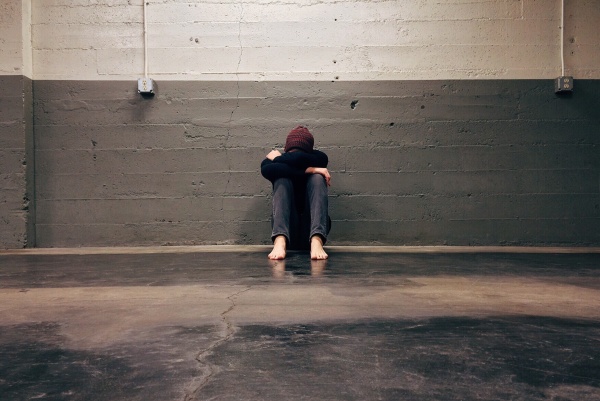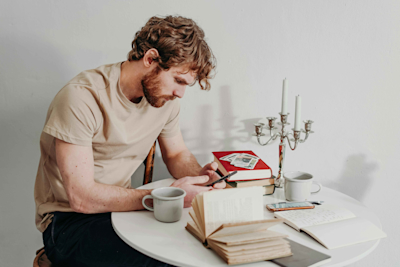
Mental Health Resources
At Mudita, we give a lot of attention to the topic of mental and physical health, with particular emphasis on mental health. We would like to provide you with a list of useful resources. Remember, it’s OK to not be OK. By talking about the problems you’re facing or by seeking help, you’re taking a step in the right direction.
There are so many organizations out there who want to help people, organizations such as Rethink.org, Blurt It Out , National Alliance on Mental Illness (U.S. based) and Time To Change (U.K. based) are all great examples as they provide more resources about dealing with mental illness and how to live with it.
Sometimes we might say we’re fine, when really, we’re not. The best course of action is to try to get to the root of your problem by discussing it with someone you trust. If you are worried about who to trust, you can call hotlines anonymously in order to get impartial and honest advice.
If you need help finding information for your local area, please let us know and we can try to assist you. Alternatively, you should be able to search and find this information online. We recommend keeping emergency numbers saved in your phone just in case you need to talk, either as contacts or as notes.
Phone Numbers
For those of you in the U.S. and the U.K., there are some useful mental health hotline numbers below. We’d like to thank ‘Healthy Place’ for the collection of U.S. numbers and the ‘NHS’ for the U.K. numbers:
If you’d rather not speak to someone on the phone, you could always listen to a mental health podcast which might help you feel better about yourself. Try listening to it on your commute, in the bath, before bed or when you’re doing any household chores you might have.
Podcasts
There are a variety of different podcasts below, hopefully you’ll find one of them helpful.
We have some more recommendations for podcasts (and videos) in the resources section of our community page, on our website. Although not all of these relate to mental health, most of them are about improving your life in some way, whether it’s using technology less or helping you to become more productive, we know you’ll find something.
Therapy
A lot of self care advice online tends to be geared towards selling products such as bath salts, candles, mindful colouring books for adults and other similar items. These might all make you feel better, at least temporarily, unless you don’t have a bath tub, you don’t have time to colour in and those scented candles make you sneeze. Be wary of online advice as sometimes ‘wellness tips and tricks’ might not always be the best choice for you.
When you’re having trouble dealing with serious problems, it’s always better to seek the help of a professional, if that sounds too expensive, there are services in place that can help you if you can’t afford therapy, here’s a great list of resources. Mental Health America and Recovery Village have a lot of useful information too.
If you need help paying for medication in the U.S., information is available via National Alliance on Mental Illness (NAMI). There are also Cognitive Behavioural Therapy (CBT) books and workbooks (with exercises) that you could try at home! Sunshine Behavioral Health addiction treatment (U.S.) has combined all available not for profit and free services into one directory.
Try to be mindful of your own behaviours and thoughts, it can be difficult at first but you will eventually start to recognise patterns in yourself. Self harm is a term often associated with emotional young people (thanks hormones) who might cut (or scratch) at their arms or legs as a ‘cry for help’.
However, self harm can manifest itself differently, particularly in adults, skin or hair picking, plastic surgery treatments (body dysmorphia is very common due to the rise of the selfie) over and undereating are a few examples of this. Online resources have become increasingly more important for LGBTQ+ youth to maintain their mental and emotional health.
Try to get to the root of why you do these things and then take action. For example, if you’re triggered by social media and it brings you down, use it less or remove your social media apps from your phone. Sometimes drug and alcohol addiction can cause mental health problems, there are a number of places that can help such as DrugRehab.com or a facility such as the Columbus Recovery Center in Ohio, US. They have created a comprehensive depression and suicide resource guide.
Where possible, maintain an ‘attitude of gratitude’, when you find yourself thinking negatively, about a person or situation, try to think about something positive instead. What are you grateful for? If you’re asked to name five things you care about, be sure to add yourself to that list. Most of us tend to forget that we are important to ourselves, developing a strong sense of self will help you to overcome obstacles and heal more quickly from emotional trauma. You are worthy.
If you don’t feel as though you need therapy but you would like to make some changes to your life, whether they’re physical, mental or spiritual, ‘Designed for Awesome’ have a lot of interesting ideas so that you can try to work on yourself, grow with the right mindset, feel healthier in your body and feel empowered enough to make lasting changes to your life.
Is there anything you’d like to add, have we missed anything? We’d love to know what you think. If you’re interested in sharing your experiences with us or writing a guest post for us, send us an email via hello@mudita.com!
Please feel free to get in touch via social media (send us some photos or videos too), you can find us on Facebook, Twitter and Instagram, let’s connect! To learn more about Mudita, take a look at our website and our other posts. If you enjoyed reading this article, please share and recommend it! We need to go online to find people who’d like to spend more time offline.
Related stories

Is Short-Form Video Hurting Your Focus?
New research shows short-form video may weaken attention. Explore how mindful tools and Mudita Kompakt support healthier digital habits.

Effects of chronic sleep deprivation on health & well-being
How your sleep habits are shaping your life, productivity & relationships and why prioritizing rest is a crucial step towards safeguarding your well-being.

Why do Navy SEALs use box breathing?
Box breathing is a technique used by Navy SEALs, athletes, and others in high-stress situations to help manage stress and maintain focus.
If you'd like to receive the best stories from our blog, keep up to date with our progress and get notified about our product releases and special discounts.